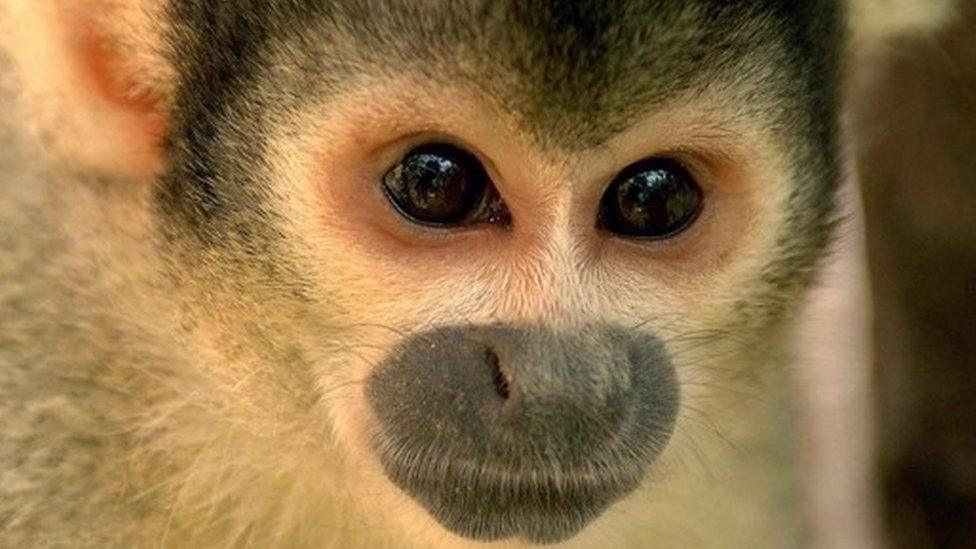Monkeys could be banned as pets, says government
- Published

People in England could be banned from keeping monkeys and other primates as pets, the government has said.
Up to 5,000 are living outside licensed zoos in the UK, with animal welfare minister Lord Goldsmith saying many of them are in "misery" due to a lack of space and stimulation.
The Department for Environment, Food and Rural Affairs is also looking at restrictions on breeding primates.
An on the proposed changes has begun.
Primates, including lemurs, monkeys and apes, require open spaces, varied diets, warmth and social contact.
Under the plans, those who keep them without a zoo licence would need to obtain a new specialist private primate keeper licence to ensure they are meeting zoo-level welfare standards.
Lord Goldsmith said: "Primates are hugely intelligent and socially complex animals. When they are confined in tiny cages, often alone and with little stimulation, their lives are a misery.
"It's important that we take action to prevent the suffering caused to them when they are kept as pets and so I am delighted that we are moving a big step closer towards banning the practice."
Marmosets are the most commonly held primates in the UK.
Capuchins, squirrel monkeys, lemurs and tamarins are also popular species.
Dr Ros Clubb, senior scientific manager at the RSPCA, said primates could "become depressed without adequate stimulation".
She added: "Sadly, our inspectors are still seeing shocking situations where monkeys are cooped up in bird cages, fed fast food, sugary drinks or even class A drugs, deprived of companions of their own kind, living in dirt and squalor and suffering from disease."
The government is proposing that primates not living in zoos should be registered by councils, with inspectors working out a "course of action" for each animal.